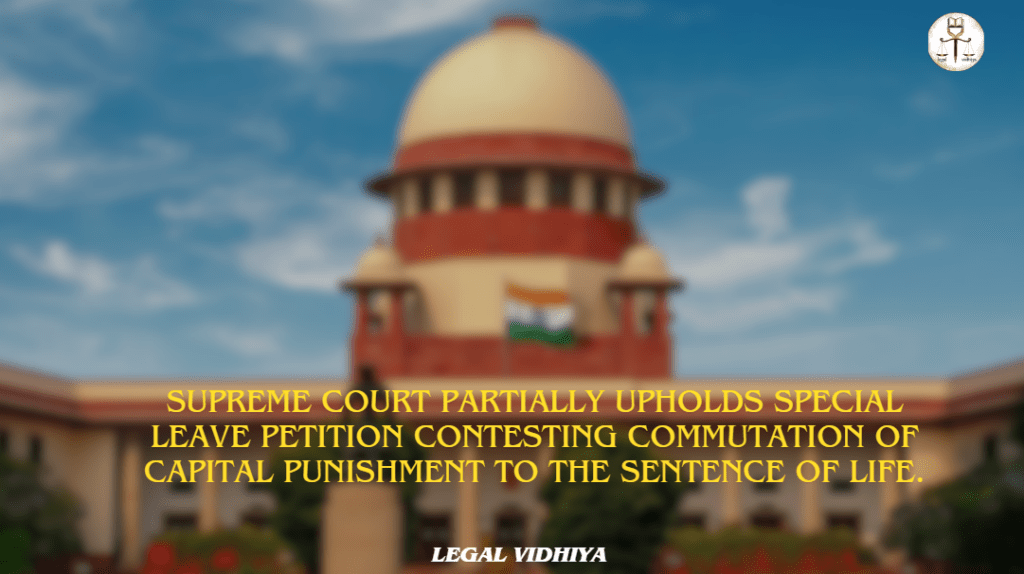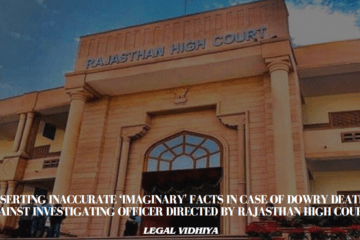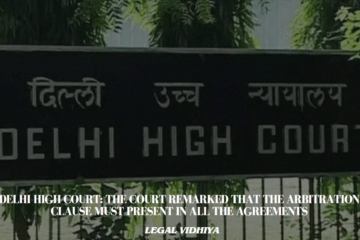
In a recent ruling, the Supreme Court partly allows the Special Leave Petition (as under Art. 136, The Constitution of India), filed by the petitioner-convict Bhagirath, seeking to assail the judgment dated 11.10.2018 of the High Court of Madhya Pradesh at Jabalpur in Criminal Appeal No.5725 of 2018, involving the commutation of capital punishment to life imprisonment.
The trial courts upon receiving a report from the complainant Munni Bai (PW-8 and grandmother of the victim) stating that her granddaughter was kidnapped and raped by the petitioner-convict. further analyzed the merits and evidences and convicted him under Section 376 (2)(i) and 376 AB of the Indian Penal Code, and under Sections 3/4, Sections 5(d)/6 of the POCSO Act, awarding the initial capital punishment, which was later commuted as imprisonment for life by the High Court, with the possibility of alternative punishments.
The dispute arose with the definitions of “brutal” and “barbaric” when the High Court claimed that this act of the petitioner-convict was neither of the two, for which the Apex Court stated that “We have no hesitation to hold that the fact he had not done it brutally will not make its commission non-barbaric.”
The question as to whether the commutation of capital punishment to sentence of life requires further interference was also disputed. The Apex court, while considering Section 376 AB of IPC, and the precedents of Shiva Kumar @ Shiva @ Shivamurthy v. State of Karnataka, Union of India v. V. Sriharan alias Murugan and Ors and Swamy Shraddananda (2) alias Murali Manohar Mishra v. State of Karnataka opined that once the conviction is sustained under Section 376 AB, IPC the fixed term punishment could not be for a period of less than 20 years. The court considered the trauma that the victim has suffered and the present age of both parties and concluded that the fixed term of sentence of 30 years, including the period already undergone, as the modified sentence of imprisonment.
The Apex court further went on to acknowledge the incompetency by the High Court in the non-addressing of the other provisions that the petitioner-convict was sentenced under, and also included the sentence of a fine which was reasonable to meet the medical expenses and rehabilitation of the victim, quantified as Rupees One Lakh (₹ 1,00,000/-) to be paid under the conviction of Section 363, IPC. With further analyses of the Section 42 of the POCSO Act, the Apex has concluded the punishment to be 30 years of rigorous imprisonment with a fine of Rupees One Lakh, with no separate sentence for the aforesaid offense under POCSO Act imposed on the petitioner-convict.
The Supreme Court’s nod to the SLP empowers a transformative journey of justice, uniting scrutiny and compassion in the legal landscape.
CASE NAME:
Bhaggi @ Bhagirath @ Naran v. The State of Madhya Pradesh Special Leave Petition (Crl.) No.2888 of 2023 (2024 INSC 82)
Authored By: Sreenishanka Vadiraj, a student of PES University, Bengaluru, 6th semester, as an intern under Legal Vidhiya.
Disclaimer: The materials provided herein are intended solely for informational purposes. Accessing or using the site or the materials does not establish an attorney-client relationship. The information presented on this site is not to be construed as legal or professional advice, and it should not be relied upon for such purposes or used as a substitute for advice from a licensed attorney in your state. Additionally, the viewpoint presented by the author is of a personal nature.




0 Comments